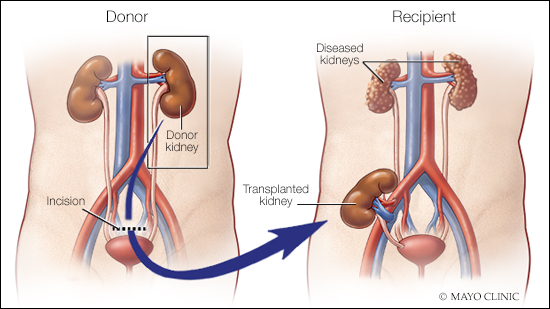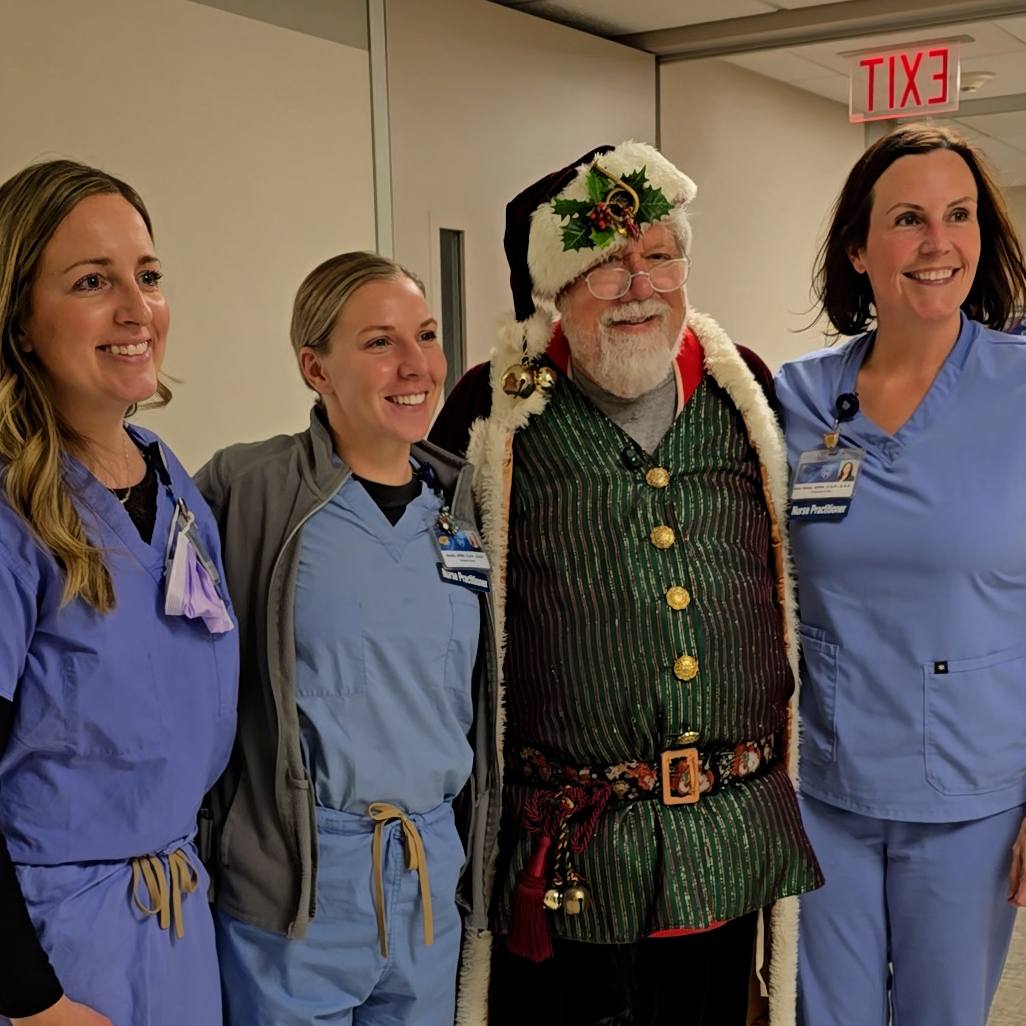With more than 90,000 people in the U.S. awaiting kidney transplants, the demand exceeds the available supply — emphasizing the critical importance of identifying safe ways to broaden the kidney donor pool.
Dr. Naim Issa, a Mayo Clinic transplant nephrologist, says, until recently, patients with Type 2 diabetes have been ruled out as potential living kidney donors. Now, following strict criteria, some patients may be eligible to help close the gap on this ever-growing need for living kidney donors.
Journalists: Broadcast-quality video pkg (1:08) is in the downloads at the end of the post. Please "Courtesy: Mayo Clinic News Network." Read the script.
Every eight minutes, a person is added to the national kidney transplant waiting list.
"Unfortunately, in this country, there is a large gap between the demand for kidney transplantation and the supply of organs from deceased donors," says Dr. Issa.Dialysis is an option for patients with end-stage kidney disease. Though Dr. Issa says a transplant is preferred — and having a living donor is best.

"Kidney transplantation offers greater survival benefits and increases the lifespan of people in need of kidney transplant," he says.
And that's a reason why it's important to expand the eligible kidney donor pool.
"Allowing people with Type 2 diabetes mellitus may open the door for some people who have not been eligible before to be potential living kidney donors," Dr. Issa says.
Criteria for a living kidney donor with Type 2 diabetes
Those eligible must be older than 60, have well-controlled Type 2 diabetes, not on insulin and have no family history of kidney disease.
"Any potential individual who would like to be a candidate for living kidney donation should undergo a very thorough health assessment and very thorough examination to ensure they are healthy enough," says Dr. Issa.
It's about safeguarding the potential donor's overall health — while helping close the gap.
Learn more about what it means to be a living kidney donor.







